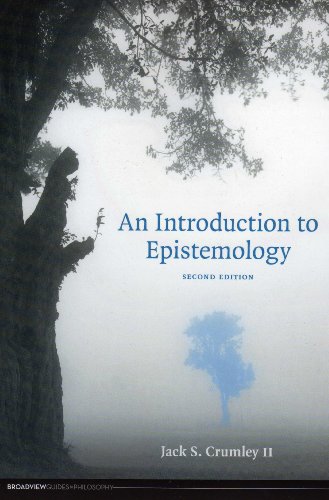

Most ebook files are in PDF format, so you can easily read them using various software such as Foxit Reader or directly on the Google Chrome browser.
Some ebook files are released by publishers in other formats such as .awz, .mobi, .epub, .fb2, etc. You may need to install specific software to read these formats on mobile/PC, such as Calibre.
Please read the tutorial at this link: https://ebookbell.com/faq
We offer FREE conversion to the popular formats you request; however, this may take some time. Therefore, right after payment, please email us, and we will try to provide the service as quickly as possible.
For some exceptional file formats or broken links (if any), please refrain from opening any disputes. Instead, email us first, and we will try to assist within a maximum of 6 hours.
EbookBell Team

5.0
50 reviewsThe second edition of Jack Crumley’s An Introduction to Epistemology strikes a balance between the many issues that engage contemporary epistemologists and the contributions of the major historical figures. He shows not only how philosophers such as Descartes, Hume, Locke, Berkeley, and Kant foreground the contemporary debates, but also why they deserve consideration on their own terms.
A substantial revision of the first edition, the second edition is even more accessible to students. The new edition includes recent work on contextualism, evidentialism, externalism and internalism, and perceptual realism; as well, the chapter on coherence theory is substantially revised, reflecting recent developments in that area. New to this second edition is a chapter on feminist epistemology, which includes discussions of major positions and themes, such as feminist empiricism, feminist standpoint epistemology, postmodern epistemology, and feminist critiques of objectivity. It presents the important contributions of philosophers such as Sandra Harding, Helen Longino, Genevieve Lloyd, and others. Each chapter ends with a list of study questions and readings for further study.